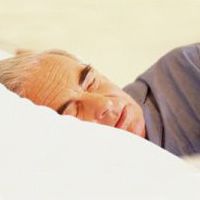Sleep Disorders Prevalent in Firefighters
Sleep disorders and other health problems are common among firefighters across the United States.

Firefighters commonly have sleeping disorders, according to research published in the Journal of Clinical Sleep Medicine in November.
Researchers from the Brigham and Women’s Hospital evaluated nearly 7,000 firefighters from 66 US fire departments in order to examine the prevalence of common sleep disorders in a national sample and their association with adverse health and safety outcomes. Sleeping disorders are independent risk factors for the 2 leading causes of death in firefighters, heart attacks and motor vehicle crashes. The firefighters were surveyed about health and safety, and documentation was collected about reported motor vehicle crashes.
About a third (37.2 percent) of firefighters screened positive for any sleep order. The investigators broke these sleeping conditions down into categories: obstructive sleep apnea, 28.4 percent; insomnia, 6.0 percent; shift work disorder, 9.1 percent; and restless legs syndrome, 3.4 percent. Firefighters who screened positive for sleep disorders were also more likely to report a motor vehicle crash and were more likely to self report falling asleep while driving. Those firefighters with sleep disorders were also more likely to report having cardiovascular disease, diabetes, depression, and anxiety. They also reported poorer health status than firefighters who did not screen positive for sleeping disorders. Adverse health and safety associations were prominent when obstructive sleep apnea and non obstructive sleep apnea were examined separately from each other.
“Our findings demonstrate the impact of common sleep disorders on firefighter health and safety, and their connection to the two leading causes of death among firefighters,” said study leader Laura K Barger, PhD, in a press release. “Unfortunately, more than 80 percent of firefighters who screened positive for a common sleep disorder were undiagnosed and untreated.”
In order to fully assess the efficacy of occupational sleep disorders and prevention, screening, and treatment programs in fire departments more research is needed, the authors mentioned.
“Occupational sleep disorder screening programs can identify individuals who are vulnerable to adverse safety and health consequences, including those that are leading causes of death in firefighters,” concluded Charles Czeisler, PhD, MD, FRCP, chief of the BWH Division of Sleep and Circadian Disorders. “This study provides the rationale for further research evaluating the effectiveness of occupational sleep disorders management programs on disease risk, mental health and safety outcomes.”